Getting a job as a personal trainer or fitness coach requires more than just knowing about exercise and nutrition. You need to ace the interview by showing employers you have the right mix of technical knowledge, people skills, and professional attitude.
The most common personal trainer interview questions focus on your certifications, coaching methods, client assessment skills, and how you handle challenging situations with clients. Interview questions for personal trainers are designed to test both your fitness expertise and your ability to work with different types of people.
Employers want to see that you can create safe workout plans, motivate clients, and build trust. They also look for trainers who stay current with fitness trends and can adapt their approach based on each client's needs and goals.
Key Takeaways
- Personal trainer interviews test both your technical fitness knowledge and interpersonal communication skills
- Employers focus on your certifications, coaching style, and ability to handle difficult client situations
- Success requires demonstrating safety awareness, motivation techniques, and professional growth mindset
Essential Interview Topics for Personal Trainers and Coaches
Personal trainer interviews focus on three critical areas that determine your success in the fitness industry. Employers evaluate your knowledge of common questions, your understanding of training responsibilities, and your professional certifications.
Most Common Personal Trainer Interview Questions
Personal trainer interview questions typically fall into three main categories. You should prepare for behavioral, technical, and situational questions.
1) Behavioral questions focus on your past experiences with clients. Expect questions about handling difficult clients or motivating unmotivated people.
2) Technical questions test your exercise science knowledge. You might answer questions about muscle groups, proper form, or creating workout plans.
3) Situational questions present hypothetical scenarios. These evaluate how you would handle emergencies or client conflicts.
Common questions include:
- How do you motivate clients who lack confidence?
- What would you do if a client got injured during training?
- Describe your approach to creating personalized workout plans
- How do you handle clients with medical conditions?
Understanding the Role and Responsibilities
Your personal trainer role extends far beyond counting reps. You need to demonstrate understanding of the complete scope of personal training responsibilities.
Client assessment forms the foundation of effective training. You evaluate fitness levels, identify limitations, and set realistic goals.
Program design requires creating safe and effective workouts. You must adapt exercises based on individual needs and progression.
Safety and injury prevention remain your top priorities. You need to show knowledge of proper form, equipment use, and emergency procedures.
Client relationship management involves building trust and maintaining professional boundaries. You provide motivation while tracking progress and adjusting programs.
Business aspects include scheduling, client retention, and sales skills. Many positions require you to build and maintain your client base.
Evaluating Certifications and Technical Expertise
Your certifications and fitness knowledge directly impact your job prospects. Employers look for specific credentials and technical competencies.
Primary certifications from recognized organizations carry the most weight. ACSM, NASM, ACE, and NSCA certifications demonstrate professional standards.
Specialized certifications can set you apart from other candidates. These might include corrective exercise, youth fitness, or senior fitness specializations.
Exercise science fundamentals form your technical foundation. You need solid understanding of anatomy, physiology, and biomechanics.
Continuing education shows your commitment to professional growth. Employers value trainers who stay current with fitness trends and research.
Practical application matters more than theoretical knowledge. Be ready to demonstrate exercise modifications, progression techniques, and assessment methods during your personal trainer job interview.
Core Competencies and Key Skills Assessed
Personal trainer interviews focus on your technical fitness knowledge and soft skills that determine client success. Employers evaluate your ability to communicate effectively, adapt your coaching approach, motivate clients toward their goals, and solve problems that arise during training sessions.
Communication and Interpersonal Abilities
Your communication skills form the foundation of successful client relationships. Interviewers assess how well you explain complex fitness concepts in simple terms that clients can understand.
Key Communication Areas Evaluated:
- Active listening - Understanding client needs and concerns
- Clear instruction delivery - Breaking down exercises step-by-step
- Feedback provision - Giving constructive corrections and praise
- Conflict resolution - Handling difficult client situations
Interview questions about communication skills often use behavioral scenarios. You might face questions like "Tell me about a time you had to explain a difficult concept to a confused client."
Use the STAR method when answering these behavioral questions. Describe the Situation, Task, Action you took, and Result you achieved.
Your interpersonal skills determine client retention rates. Employers want trainers who build trust and rapport quickly with diverse personality types.
Coaching Style and Training Philosophy
Your coaching style reveals how you approach client relationships and training sessions. Interviewers want to understand your training philosophy and methods for helping clients succeed.
Common Coaching Style Questions:
- How do you adapt your approach for different client types?
- What's your philosophy on pushing clients versus supporting them?
- How do you handle clients who resist your guidance?
Your training philosophy should align with the gym's culture and values. Research the facility's approach before your interview.
Some trainers favor a drill-sergeant approach while others prefer supportive coaching. Most successful trainers blend firm guidance with emotional support based on individual client needs.
Personal trainer interview preparation should include specific examples of how your coaching style helped clients achieve results.
Client Motivation and Goal Setting
Effective goal setting separates successful trainers from average ones. Interviewers assess your ability to help clients set realistic, measurable objectives and maintain motivation over time.
Goal Setting Framework Questions:
- How do you help clients set achievable fitness goals?
- What do you do when clients lose motivation?
- How do you track and celebrate client progress?
Your client motivation strategies should include both short-term wins and long-term vision. Employers want trainers who understand behavioral psychology and habit formation.
Effective Motivation Techniques:
- Setting SMART goals (Specific, Measurable, Achievable, Relevant, Time-bound)
- Creating accountability systems
- Celebrating small victories
- Adjusting goals based on progress
Top personal trainer competencies include the ability to reignite client enthusiasm during plateaus or setbacks.
Problem-Solving and Adaptability
Your problem-solving skills determine how well you handle unexpected challenges during training sessions. Interviewers present scenarios that test your quick thinking and adaptability.
Common Problem-Solving Scenarios:
- Client experiences pain during an exercise
- Equipment breaks mid-session
- Client's goals change due to injury or life circumstances
- Scheduling conflicts with multiple clients
Strong problem-solving skills require technical knowledge combined with creative thinking. You must modify workouts on the spot while maintaining safety and effectiveness.
Behavioral questions often explore past problem-solving experiences. Prepare examples that show your ability to think quickly under pressure while prioritizing client safety.
Personal trainer interview questions frequently test your adaptability with "what would you do if" scenarios. Practice responses that demonstrate both technical competence and client care.
Ready to start hiring for your gym or fitness business? Post a job on Barbell Jobs to reach a fitness network of thousands of fitness professionals looking for employment opportunities.


